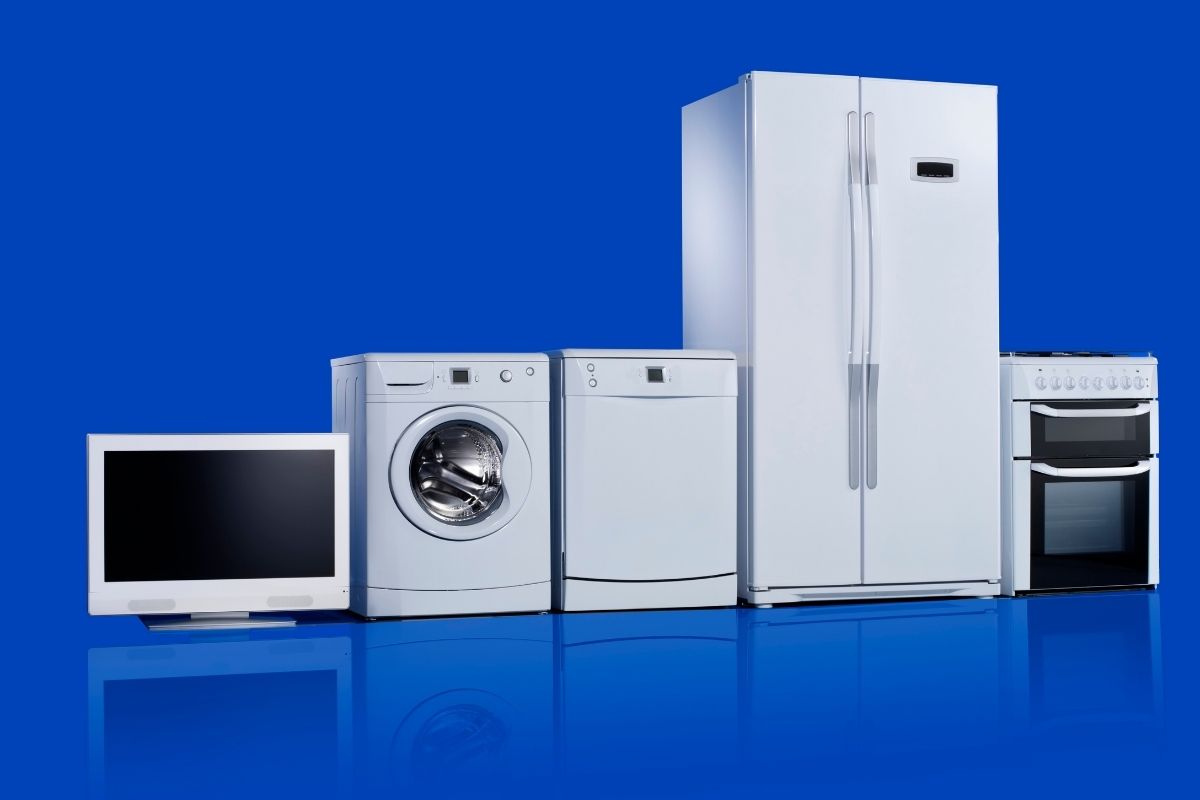As the cost of living goes up pretty much everywhere, it’s important now more than ever to manage your finances well.

Being short a couple of dollars one month can be the difference between making it through a month safely, being able to put a little money into your savings, and suddenly being in massive debt, with no way of climbing out of this monetary hellhole.
Now, more than ever, managing your money can save lives!
This is why it can often come as a shock when you take a look at your utility bills, only to find that they are so high and that you can throw any hope of saving up money out of the window.
It begs the question, ‘what exactly is making my electricity bills so high?’ With no clear answers from your energy provider, it can feel like you are left in a corner, with no way to help yourself out.
But don’t fear; In this guide, we’re going to tell you exactly what things in your home are eating through your savings and hard-earned money.
So whether it’s home appliances or electronics, or even something as simple as a lamp, we’ll name names, and we’ll give points as to how and why these things are costing you so much!
By knowing where each problem lies, you will be able to start fixing them right away, before they snowball into even bigger problems!
Let’s get started!
Heating And Air Conditioning
This is probably the biggest drain on your electrical bill right now.
Not only is heating and cooling your home putting a massive dent in your budget, but it is also tied to pretty much every other issue that faces you and your electricity bill.
Depending on your location, this is easily something that will use up a lot of electricity throughout the day.
On average, both heating and air conditioning in your home can make up as much as 46 percent of your energy bill costs!
That’s an insanely large amount! This means that finding ways to monitor your heating can save you tons of money in the long run.
If you have a central heating boiler installed, then this is usually controlled by an energy regulator, which tells the boiler what temperature to heat your house too.
This could either be set automatically or manually via a thermostat.
The thermostat may not seem like a huge deal, but depending on the size of your home, your thermostat might need to work harder than it should, just to keep the place nice and warm.
The same goes for air conditioners.
Most homes today use some type of inverter-based system, meaning that the A/C unit itself doesn’t run off mains power instead of using its built-in inverter to convert direct current (DC) into alternating current (AC).
This means that there is no heavy machinery running during peak times, and there is no demand placed upon the local network.
If you live somewhere that experiences long winter periods, then you may notice your electricity bill rising throughout fall and springtime due to your air-con constantly working overtime to maintain a comfortable indoor climate.
So if you are experiencing higher bills, then you should first check out your thermostats – maybe your thermostat needs updating?
Remember: Even being able to reduce your thermostat for just a few minutes an hour can lead to massive savings in the future.
Water
Right behind central heating, we have water heating as one of the big issues that eat away at your electricity bills.
Approximately 14 percent of your energy bills will come from the heating, cooling, and distribution of water around your house.
And whilst 14 percent might not sound like a lot, especially when compared to the heating bill costs we just discussed, that is still over one-tenth of your potential bill going to heating water!
To take care of this, you’ll first want to ensure that all appliances in your house are properly insulated. Then you’ll want to look at having more efficient hot water systems, such as tankless water heaters.
These types of systems don’t store water, they simply heat it directly from the mains.
When combined with a smart meter, you can even learn how far you’ve traveled down the potable water supply line, allowing you to conserve where possible.
Appliances

Appliances include pretty much any machine that is involved in your everyday life. Keep your refrigerator and freezer cold. Use your washer and dryers. Use your oven and electric stove.
These are all vital to you being able to live your day-to-day life, but can still put a pretty big dent in your energy bills if you aren’t careful.
When it comes to saving electricity with these appliances, it comes down to knowing how to use them well. Make sure that you stack your fridge correctly to keep everything cool on their appropriate shelves.
Avoid doing small or half-full washing loads, and only fully loading your washing machine. Drying your clothes on a line, rather than in a dryer.
Using a microwave oven in favor of a full oven when possible. All of these things add up.
Lighting
A lot of energy is wasted when it comes to lighting. Bulbs will often end up converting their energy into heat, rather than light, especially in older models of lightbulbs. Luckily, newer versions tend to be much more efficient.
Many LED bulbs now produce more lumens than traditional halogen or incandescent bulbs. But even those LED bulbs need replacing every ~7 years, so keep that in mind if you are looking to switch.
And, of course, you should always remember to turn off your lights if nobody is in the room!
Other Devices
Devices such as your TV, gaming consoles, computer, and laptop, take up the least amount of energy, at least when compared to the other items on your electricity bill that you might be paying for.
However, there are some ways to save by cutting back to lower your usage. For instance, turning off Wi-Fi and Bluetooth when you’re not using them is a great way to cut back on those electricity bills.
This also includes fully turning off your devices, rather than leaving them on standby. Even if the energy reduction is smaller, it is still more than when it is turned off.
If you have a habit of leaving your TV or Xbox on overnight, you should probably consider putting a timer on your devices. You could set it to turn itself off after 10 minutes or turn it off automatically at night.
Does Unplugging Devices Save Electricity?
Yes! Unplugging devices saves you money.
Electricity is still being sent to your plug socket, so you should always take your appliance out of the socket if you aren’t using it (unless it is something that needs to be kept on, such as a refrigerator or freezer).
Turning off your electrical device will reduce the amount of electricity used by your household, which means less money spent on your electricity bill.
Conclusion
So, there you have it! There are plenty of easy ways to slash your energy consumption while keeping your home comfortable. So, always try to switch off the lights before going to bed.
Turn off your heating system once you leave, instead of leaving the thermostat on high. And don’t forget about your air conditioning, because an A/C unit uses a lot of electricity too.
Hopefully, this article has helped you find ways to make your home a little greener, without having to sacrifice your comfort.
Financial Disclaimer
This post contains sponsored advertising content. This content is for informational purposes only and not intended to be investing advice.
The investing information provided on this page is for educational purposes only. compundingstacks.com does not offer advisory or brokerage services, nor does it recommend or advise investors to buy or sell particular stocks or securities.
The owner(s) of this blog is compensated to provide opinion on products, services, websites, and other topics. The owner(s) may be compensated if you click on a provided link and purchase or sign up for a service. Any product claim or advice about a product or service should be verified with the manufacturer, provider, or party in question. Copyright Compounding Stacks © 2022
- Is Coinbase Safe For Beginners? - March 25, 2022
- Are Penny Stocks Good For Beginners? - March 25, 2022
- Why You Shouldn’t Save Your Money In A Bank? - March 25, 2022
